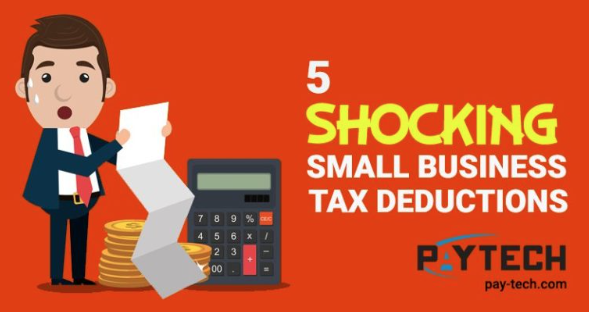
Ready to save some money? Tax codes are complicated and we often hear from employers that feel like they are not taking full advantage of the numerous, confusing tax breaks. We’ve identifies five small business tax deductions that may prove a great benefit when it comes to writing that final check to the IRS.
Essentially, Section 179 of the IRS tax code allows businesses to deduct the full purchase price of qualifying equipment and/or software purchased or financed during the tax year. That means that if you buy (or lease) a piece of qualifying equipment, you can deduct the full purchase price from your gross income. This is substantially better than previous years when a company had to depreciate the cost of computer software over 3 years. New, off-the-shelf software business buys can be fully expensed in the year purchased.
Software, magazine subscriptions, professional catalogs, technical journals and the like are 100% tax deductible if related to your field of work.
Additionally, subscription to a magazine, professional catalogs, technical journals and the like are 100% tax deductible if related to your field of work.
Every small business owner knows that there are costs to starting your business before the first paycheck ever rolls in. The good news is that you may be able to deduct expenses you paid to start your business, such as advertising, transportation, consultant fees, travel, employee training and wages, and legal and accounting fees. These costs are considered capital expenses, which means you must amortize as opposed to deducting them all at once in the year you pay for them.
There is a slight exception to this rule, in that you can deduct up to $5,000 in qualifying startup costs and $5,000 in organizational costs every year. However, the costs must be incurred in the year you started the business and before the day the business opened, according to IRS Publication 535. Any remaining costs must be amortized over the next 180 months (15 years) of operation, beginning with the month after you started your business, according to the IRS.
It happens to us all – you get that one client or debt that you know you cannot collect on. Yet, it may not be a complete loss for your business if you are able to deduct the expense.
The IRS defines a bad debt as one that was created or acquired in your trade or business when it became partly or totally worthless.
They become bad debts only after you’ve tried to collect on them for a reasonable period of time and you’ve taken “reasonable steps to collect the debt but were unable to do so,” according to the IRS.
Ready for another huge tax deduction? Self-employed persons paying their own health insurance premiums get a 100% tax deduction for this expense. Whoop, Whoop!!
This break, specifically designed for proprietorships, does come with some limits so be sure the read carefully. The deduction can’t be more than your business’ net profit, nor is it allowed if you were eligible for other health care coverage, “i.e” that which was offered by your employed spouse’s medical plan.
However, if your spouse worked for you last year then you can get the full medical premiums deduction on your return. Spouses who are employees of the company can deduct 100% of the premium costs. Additionally, you can deduct the cost of children’s insurance if they are covered under your spouse. You must make sure that 1) Your spouse’s employment must be real, not in name only, and 2) you must offer coverage equally to any other employees.
Speaking of kids, do you have them working around the office? Then get ready for another tax break. You can deduct the salary of a child as a business expense if you 1) operate as a sole proprietor or as a partnership in which you and your spouse are the only partners, and 2) the child is legally your dependant. What’s more, your kids may be able to avoid income tax depending on how much you pay them throughout the year.